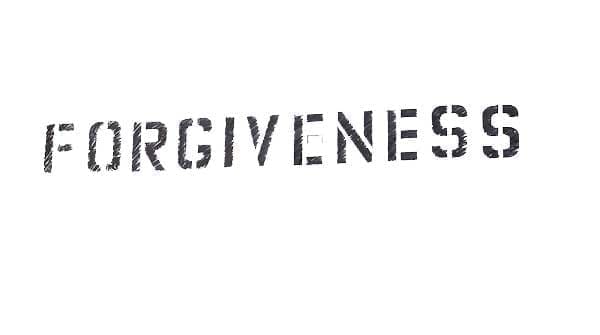Holding on to anger and resentment keeps us from being what we are capable of, so learn to let it go and embrace the power of forgiveness
 When someone does us wrong, our instinct is to seek vengeance. This is the law of the jungle and we see it happen among our animal friends all the time.
When someone does us wrong, our instinct is to seek vengeance. This is the law of the jungle and we see it happen among our animal friends all the time.
Humans, however, need to ask if this serves us well. Is it in our best interest to try to get back at other people? As Gandhi is reputed to have said, “An eye for an eye makes the whole world blind.”
We all experience pain in life. This could have been caused by anyone – a parent, a person in a close relationship with us, a business partner, a teacher or an associate. Sometimes, we cause ourselves pain.
However, holding on to anger and resentment keeps us from being what we are capable of. For example, anger held toward a parent can be quite debilitating for an individual, even well into adulthood.
Here is an activity we can use to release our hurt so that it no longer hinders us: we need to simply write a letter.
In the letter, we say to the person, “I forgive you for everything you did that hurt me.”
We then go on to explain all of the things the other person did to hurt us. This can be quite long, but it is very powerful.
It doesn’t matter whether the other person agrees with what we are saying or even acknowledges it. This letter is not for them; it is for us, and we know the pain that they have caused.
We conclude the letter by saying, “I wish you well.”
Then we mail the letter. It may be well received by the other person and lead to reconciliation, but that isn’t necessary. We have done our part by writing the letter, and we’re now free.
There are people we can’t mail a letter to. They may be deceased or we may know that the letter will be too difficult for them to receive. We can still write it, however, and we can still forgive.
I did this exercise and I was astounded by the result.
For several years, when a certain professional’s name came up in conversation or even in my thoughts, I would be drawn into thinking of the hurt that they had caused, of how incompetent I felt they were and how they should have known better. Now that I have sent the letter, I think, “Oh, that has been released. I am free of those thoughts. It doesn’t matter what they think. All will be well in my life and I wish them well.” I then return to what I was doing, no longer burdened by any resentment.
Even if we don’t write a letter, we can say in our own minds, “I forgive them for everything and I wish them well.”
When you have difficulty forgiving yourself, I encourage you to say, “I forgive myself for every mistake I have ever made. I am a thoroughly good person, and I am going to have a wonderful future.” In the short form, we can say, “I forgive myself completely.”
When we feel regret for something we have done to another person, we can apologize and try to make reparations. Again, the other person’s reaction doesn’t matter – we have done our part.
Forgiveness allows us to heal and free ourselves. Thoughts of vengeance, shame or guilt no longer burden us. We are free to live with peace of mind and to have the wonderful, happy and productive lives for which we are destined.
Gerry Chidiac specializes in languages, genocide studies and works with at-risk students. He is the recipient of an award from the Vancouver Holocaust Education Centre for excellence in teaching about the Holocaust.
For interview requests, click here.
The opinions expressed by our columnists and contributors are theirs alone and do not inherently or expressly reflect the views of our publication.
© Troy Media
Troy Media is an editorial content provider to media outlets and its own hosted community news outlets across Canada.


